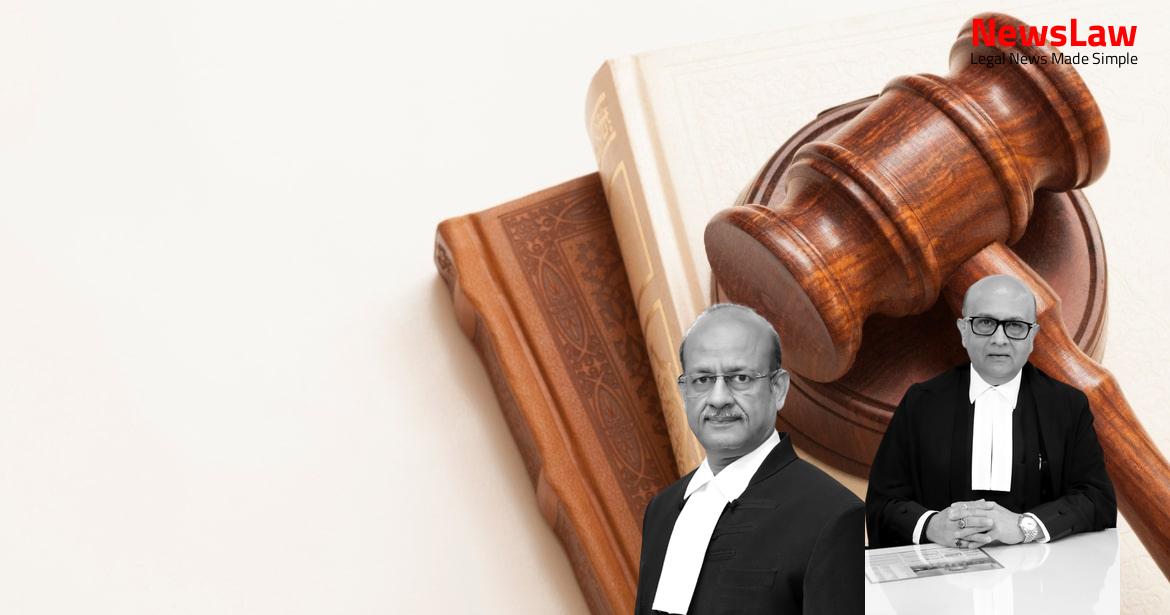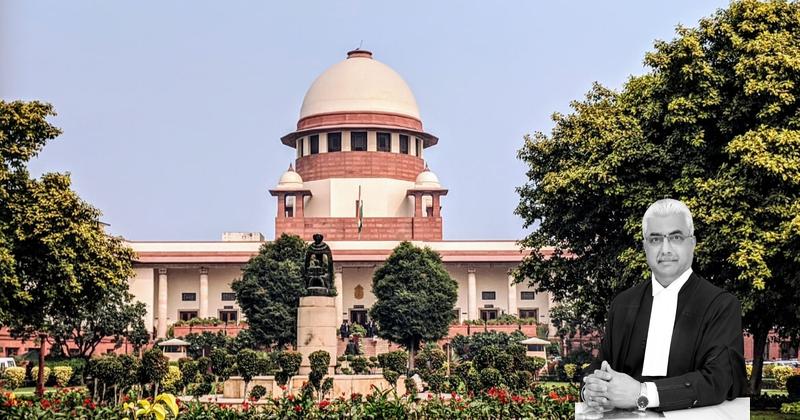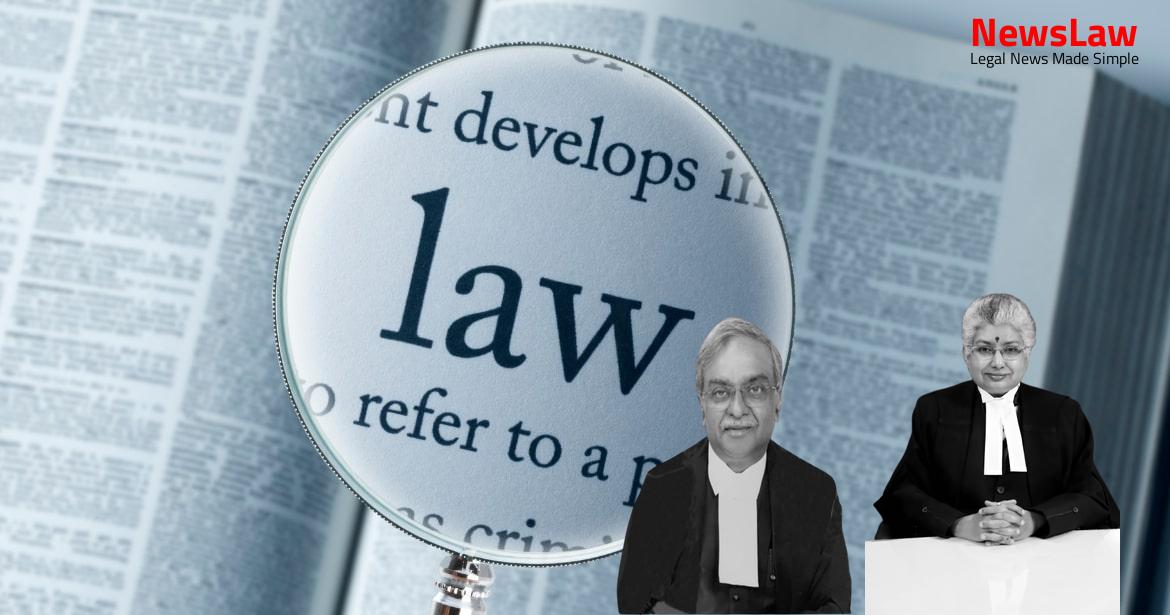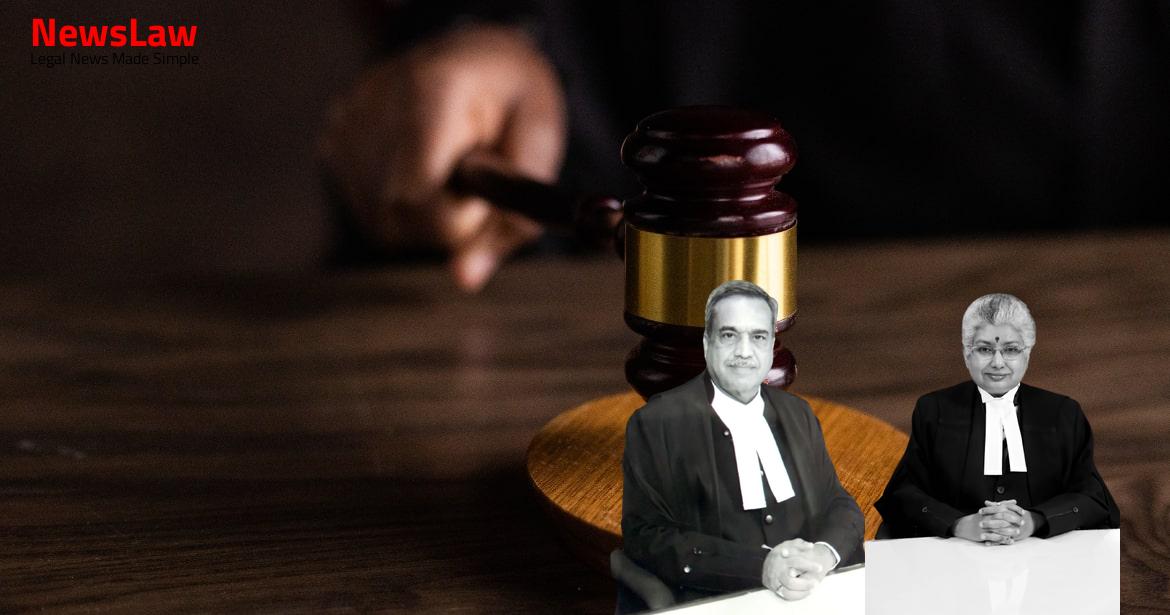In a significant legal development, the Supreme Court of India recently addressed the jurisdiction and extension of time in a contract rescission case. The case involved a dispute regarding the application under Section 28 of the Specific Relief Act, 1963. The Court’s decision shed light on the complexities of contractual obligations and the powers of the Court to ensure justice in such matters.
Facts
- The appellant (the judgment-debtor) filed a Second Appeal challenging the appellate court decree but it was dismissed on 07.11.2013.
- The appellant (the judgment-debtor) submitted an application under Section 28 of the Specific Relief Act, 1963, to rescind the contract as the decree-holder failed to make a deposit within the specified time frame.
- The Execution Court rejected the judgment-debtor’s application for rescission of the contract and allowed the decree-holder to make the deposit of the balance consideration.
- The judgment-debtors filed a Civil Revision before the High Court against the Execution Court’s order, which was also dismissed.
- The respondents (decree-holders) filed an execution application seeking the execution of the sale deed as per the decree, payment of the balance sale price, and recovery of costs from the judgment-debtors.
- The Court of first instance had jurisdiction to extend the time for deposit as the execution application was filed in the same Court where the original suit was instituted.
- The decree did not specify the mode of payment, and the only method for the decree-holder to pay the balance amount was by filing an execution application and seeking permission from the Court.
- The judgment-debtors were offered the balance consideration within the specified time frame, but they chose to file a second appeal instead of executing the sale deed.
- After the dismissal of the second appeal and subsequent Special Leave Petition, the decree-holders filed an application before the Execution Court to deposit the balance consideration.
- Throughout the legal proceedings, the decree-holders were ready and willing to fulfill their obligations under the contract and decree.
- A suit for specific performance was filed by the respondents against the appellants for enforcing an agreement to sell dated 18.05.2005.
- The appellants had agreed to sell the property for Rs. 18 lacs, out of which Rs. 9.77 lacs was paid in advance.
- Despite notice for executing the sale deed, the appellants failed to do so.
- The trial court initially decreed the suit partly, directing the refund of earnest money with interest.
- The respondents appealed against the rejection of the specific performance prayer.
- The appellate court allowed the appeal and accepted the prayer for specific performance of the agreement.
Also Read: Ownership Liability of Hindustan Motors and Vaibhav Motors in Vehicle Compensation Case
Issue
- The issues for consideration are: (i) Jurisdiction of the Execution Court to deal with the application for rescission of contract and extension of time for depositing the balance sale consideration, (ii) Whether the applications should have been decided along with the suit on the original side, and, (iii) Whether the impugned order warrants interference under Article 136 of the Constitution of India solely on the ground of deciding the applications separately.
Also Read: Analysis of Eyewitness Testimony and Circumstantial Evidence in a Murder Case
Arguments
- The Execution Court had no jurisdiction to extend the time for depositing the balance consideration as the decree under execution was passed by the appellate court.
- The decree was executable on payment of balance sale consideration within two months.
- No application for extension of time to make deposit was made within the aforesaid period, therefore the Court had no power to extend the time for deposit.
- The Execution Court committed a grave error in extending the time to make a deposit of the balance amount after four years of the appellate court’s decree, when, otherwise, it was to be paid within two months from the date of the decree.
Also Read: Dismissal of Employee based on Guilty Plea Set Aside by High Court
Analysis
- The power to rescind the contract under Section 28 of the 1963 Act is discretionary to do complete justice to the parties.
- An application under Section 28, whether for rescission of contract or extension of time, must be decided in the original suit where the decree was passed, even if the suit has been disposed of.
- The Execution Court, as the Court of first instance with reference to the suit where the decree was passed, must transfer the application filed under Section 28 back to the suit file before dealing with it.
- The expression ‘may apply in the same suit in which the decree is made’ in Section 28 should be interpreted broadly to include the court of first instance even if the decree under execution is from the appellate court.
- The objection regarding the jurisdiction of the Execution Court to handle the application under Section 28 of the 1963 Act should be rejected.
- The Court retains the power to extend the time to deposit the balance consideration even if a specific date was directed in the decree for payment.
- The Court can deny relief or mold relief based on the conduct of the parties and in the interest of complete justice.
- Factors such as intentional default, bona fide reasons for delay, and absence of fault on the part of the decree holder should be considered when extending time for deposit.
- The decree does not cease to have any jurisdiction after passing; the Court’s power continues even post-decree.
- The Court can exercise its jurisdiction under Article 136 based on substantive justice factors in addition to legal aspects.
- Section 28(1) of the 1963 Act suggests that the power to extend time or rescind the contract rests with the Court which passed the decree.
- The Court has the authority, as per the Act, to rescind the contract either partially or entirely based on the circumstances of the case.
- In the case of Ramankutty Guptan Vs. Avara, two key questions were addressed regarding the maintainability of an application under Section 28 of the 1963 Act.
- The Court clarified that such an application can be made in the Court of first instance even if the decree was passed by the appellate court.
- Additionally, the Execution Court where the original suit was filed has the jurisdiction to entertain an application under Section 28 of the 1963 Act.
- Section 28(1) also empowers the Court to extend the time for deposit if the decree specifies a deadline for performance, allowing for flexibility in payment terms.
- In K. Kalpana Saraswathi Vs. P.S.S. Somasundaram Chettiar, the court allowed the plaintiff to deposit the directed amount within six months along with interest.
- An application for extension of time for payment can be filed in either the first instance or the appellate court as the trial court’s decree merges with the appellate court’s decree which is under execution.
- Procedural rules should serve justice and can be adapted to serve substantial justice unless they pertain to jurisdictional issues.
- The decision in Sanjay Shivshankar Chitkote Vs. Bhanudas Dadarao Bokade emphasizes transferring applications under Section 28 from the execution side to the suit file for proper numbering.
- When a decree is transferred for execution to a different court, that court is not the same court as the original court where the suit was filed.
- An application under Section 28 can be made in the same court where the original suit was filed and where the execution is being carried out.
- Referring to the Ramankutty Guptan case, in V.S. Palanichamy Chettiar Firm Vs. C. Alagappan, the court confirmed that when the trial court and executing court are the same, the executing court can entertain applications for extension of time.
- The Execution Court justified its discretion in favor of the decree-holders by allowing them to deposit the balance consideration.
- Interfering with the impugned order only on technical grounds of the application not being dealt with on the original side would cause grave injustice.
- The appellants’ submission that there was no proper application for extension of time was rejected as the respondents consistently showed intention to pay the balance consideration.
- The respondents were willing to execute the sale deed, while the appellants seemed more interested in challenging the decree in higher courts.
Decision
- The judgment-debtor(s) applied to the Execution Court for rescinding the contract under Section 28(1) of the 1963 Act.
- The judgment-debtor(s) did not raise any jurisdictional issue before the Execution Court or the High Court.
- No interference with the impugned order is necessary under Article 136 of the Constitution.
- The appeal is dismissed with the interim order being discharged.
Case Title: ISHWAR (SINCE DECEASED) THR. LRS Vs. BHIM SINGH (2024 INSC 651)
Case Number: C.A. No.-010193-010193 – 2024



